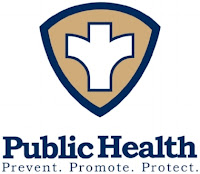First off, it's worth noting that longtime activist and recent Urbana City Alderman Erik Jakobsson died this month. The News-Gazette had a long article with comments by those who knew him and some of his public work here.
The big news item for Urbana City government this month involved gun violence and Automatic License Plate Reader (ALPR) technology as a tool to help police solve some of the cases. The News-Gazette had an overview of the recent town hall meetings last week, including comments for and against the technology and concerns about how it may be used or abused. The content of the presentations was very similar in both town hall meetings, but had varying public questions and input (October 28th Town Hall video available here, the 29th here).
The News-Gazette article also noted some Urbana council members present:
Council members who were present Friday included Chris Evans, Maryalice Wu and Shirese Hursey.
Only Hursey was willing to express her support for the technology.
Evans said he is still gathering research and Wu said she wanted to see the final policy.
“I’m not a ‘no,’ but I’m not a ‘yes,’” Wu said.
The full News-Gazette article is here. More on the ALPR issue in both Champaign and Urbana from the News-Gazette here. WCIA had extensive coverage on the subject here. Excerpt:
Chief Seraphin said the ALPR’s cost about $2,500 per unit nd about $250 to install. He says he hopes they can install around 20 throughout Urbana.
Urbana got this idea after watching it work for surrounding cities. Rantoul recently caught a suspect by using the ALDR’s. Decatur also has them.
Mayor Marlin also said the University of Illinois Police and Champaign County Sheriff’s Office are looking into installing them as well. Chief Seraphin and the mayor said this would be helpful to work together with the surrounding areas.
That full article here with video segment. WCIA also had coverage of the first town hall on ALPRs put together by the Urbana Police Department and the Champaign County Branch of the NAACP who was advocating for the measure. This follows previous discussions by the City of Urbana on dealing with the vast increase in gun violence locally. WCIA also had coverage of the University of Illinois Police Department and co-responder model updates in Champaign County here.
The News-Gazette also had some updates on the pilot program between the Urbana Police Department and Rosecrance, a local mental health services provider, for responding to mental health crisis calls and alternatives to jail for certain non-violent scenarios.
Plans for the crisis co-responder team call for a Rosecrance social worker and an Urbana police officer who has a master’s degree in social work to follow up on calls for service related to mental or behavioral health crises, Marlin said.
The Urbana officer to work on this team will have a new title — behavioral health detective — and since she will be redeployed from her current police job, there will be no new city money involved, the mayor said.
Urbana Police Lt. Corey Koker, who is overseeing this program for the police department, said the police-Rosecrance response team will be focused on public service and will have its own dedicated office and resources.
In follow-up response visits, the team will try to connect people in crisis to available community services that can help them, he said.
That full article is here. WCIA also had coverage on this topic here.
More government related news from Urbana:
Urbana schools offering more pay to deal with a substitute teacher shortage from Illinois Newsroom.
COVID testing in Urbana schools from Illinois Newsroom.
The City won an AARP challenge grant for a public arts initiative. Link from Smile Politely.




